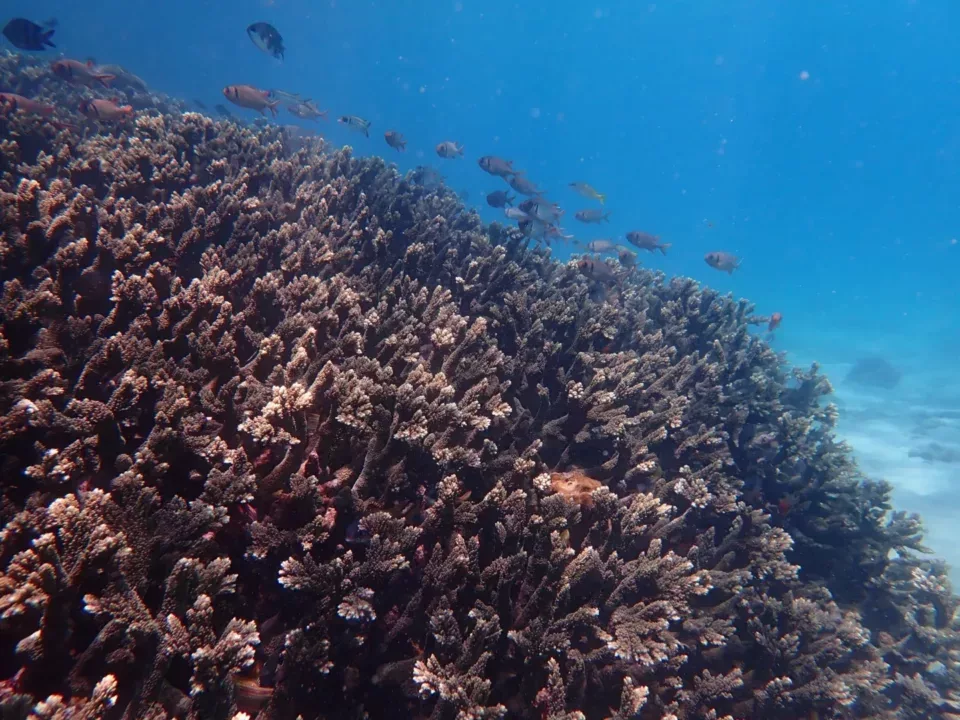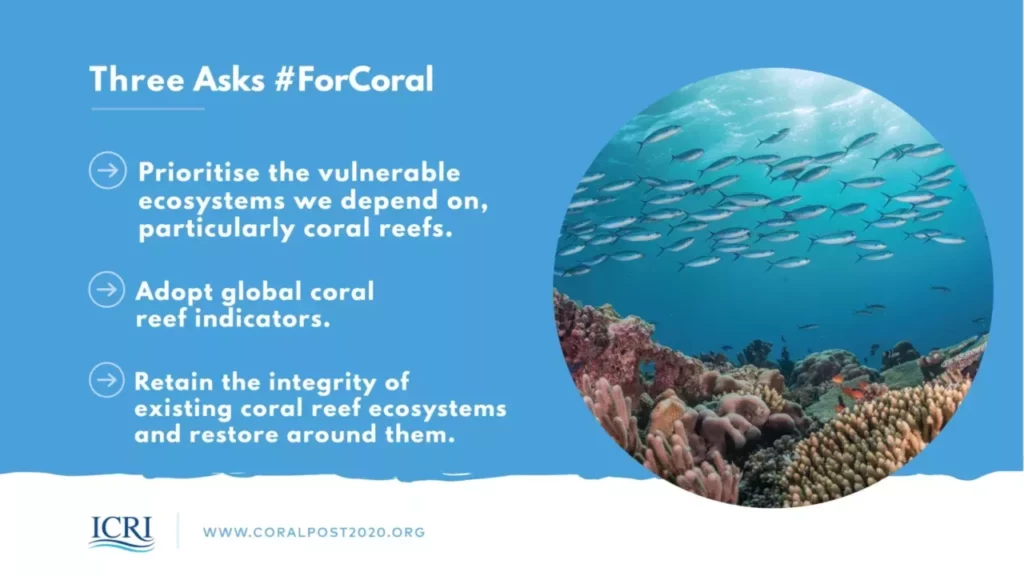The success of the new global biodiversity framework depends on strong commitment and clear, practical indicators to track progress
We are down to the wire in the final stages of negotiation for a new Global Biodiversity Framework (GBF). The International Coral Reef Initiative (ICRI) has been involved from the outset, driving a greater focus on coral reefs as a critical and vulnerable ecosystem. Our hopes for the language that Parties to the Convention on Biological Diversity (CBD) will include in the GBF are laid out in the ICRI Recommendation adopted in 2020. In late June, the CBD will convene a small group of experts to develop the monitoring framework for the GBF, which will be essential for assessing progress and holding Parties and stakeholders accountable. David Obura, Founding Director of CORDIO East Africa, will participate in these technical meetings on behalf of ICRI. David is a well-respected member of the coral reef science community and a long-standing member of ICRI and co-author of the Sixth Status of Coral Reefs of the World: 2020 report. He shares his views on the importance of the negotiations at hand and what he hopes to accomplish with the meeting.
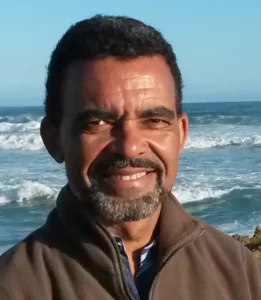
Governments that are Party to Convention on Biological Diversity (CBD) will establish a global roadmap for living in harmony with nature when they come together at the 15th meeting of the Conference of the Parties (CoP15) later this year. To realize this potential, governments must adopt by consensus a strong and ambitious post-2020 Global Biodiversity Framework (GBF). This pivotal moment for our planet’s biodiversity requires a framework that conserves and restores our interconnected, fragile ecosystems before it is too late. A clear and practical monitoring framework will allow us to assess if actions taken to conserve and restore biodiversity are producing the desired result, and if not, make course-corrections in real time.
Ahead of CoP15, I’m honored to represent ICRI at the Bonn-hosted technical meeting to work on the indicators that will form part of an overarching monitoring framework for the GBF. The GBF goals and targets are meant to not only establish rules and guidance, but foster commitment to a common global vision and incentivize action at the local, national, and global levels. As a participant, I will work to ensure the monitoring framework provides scientifically sound and robust guidelines that serve as the foundation of the GBF’s mission to protect our biodiversity’s future.
As we convene, it’s important we remember and apply the lessons borne from the previous Aichi target failures. While they delivered some progress, the opportunity to inspire and coordinate global action ultimately fell short because many of the targets were too prescriptive.
We have come a long way in the past 15 years and today countries have greater urgency to collaborate, share data and best practices, and take strong actions based on what we hope will be clear, concise goals and targets negotiated by the Parties.
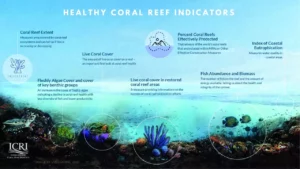
Acting on the ambition to reverse biodiversity loss will require a strong monitoring framework with simple and robust indicators that provide concrete evidence linking actions to improvements in ecosystem status. The Framework will need broadly applicable “headline” indicators on both ecosystem area and ecosystem integrity, which can then be delivered using ecosystem specific indicators, such as those spelled out in the suite of ICRI recommended coral reef indicators.
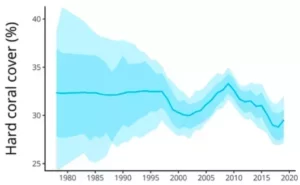
Realistically, the damage wreaked on coral reefs by climate change in recent decades has left their outlook bleaker than many ecosystems. Scientists estimate up to half of coral reefs globally have been severely degraded, with 14% loss of coral cover in the last decade alone. With the alarming rate at which waters continue to warm, another half are likely to be lost. Strong indicators can tell us so much about the status of coral reefs and the surrounding marine ecosystems.
Critically, the GBF is not just about protecting biodiversity in a vacuum. Biodiversity is the foundation of everything we do and understanding its current state is vital to planning a sustainable future for humanity. We cannot achieve UN Sustainable Development Goals such as Zero Hunger, Responsible Consumption and Production, Reduced Inequalities, Climate Action and Partnerships for the Goals without a robust biodiversity framework.
The success or failure of the GBF will depend on global commitment and implementation of actions that follow. In these final moments of GBF development and in the face of multiple other crises (such as COVID and conflict), countries and stakeholders cannot revert to historical comfort zones and stop cooperating. We all must keep the bigger, alarming picture of biodiversity loss and our shared prosperity in mind.
Once the GBF has been established, we must use it to guide urgent action. It is well-established that the countries that produce and consume the most are the greatest contributors to biodiversity loss. While we all have a role to play, wealthier nations that have reaped the rewards of nature over centuries must commit the resources necessary to ensure impacts are reversed. Resources must be mobilized to support conservation, restoration and biodiversity monitoring, which is most needed in those developing countries experiencing the greatest biodiversity damage. We should consider this funding as direct investment in our shared future.
Now is the time to act as a global community with a common ambition. We must commit, cooperate, and deliver on a Global Biodiversity Framework that illuminates the path forward for our planet and our people.
Note from ICRI:
We have three asks of CBD Parties to make sure the GBF will support the urgent action needed to conserve the world’s coral reefs: to ensure that the GBF prioritises coral reefs as one of our most vulnerable and important ecosystems; apply a strategic approach that focuses on retention; and adopt the ICRI-recommended indicators of coral reef health within the GBF monitoring framework. These indicators include coral cover, coral reef extent, fleshy algae cover, area of coral protected, water quality, and restoration. Many of these indicators feed into calculating the Red List of Ecosystems for coral reefs. The ICRI recommended indicators will work together to create a globally consistent, scientifically sound means to establish baselines and track coral reef health against GBF goals and targets.
You can find out more about how ICRI has engaged with the CBD Post-2020 Global Biodiversity Framework at www.coralpost2020.org.
